UK lawmakers urge PM to push for prisoners release in return for financial aid to Bahrain
British lawmakers have called on Prime Minister Rishi Sunak to push for the release of political prisoners in Bahrain in return for the unconditional financial support the kingdom receives from London.
The plea was made ahead of a visit this week by Bahrain’s Crown Prince and Prime Minister Salman bin Hamad Al Khalifa to London.
In a letter seen by Middle East Eye, the British lawmakers questioned the UK government’s allocation of £13 million to Bahrain over the past decade despite a decline in human rights and democratic standards in the kingdom.
The lawmakers singled out the Bahraini Ministry of the Interior’s Ombudsman and the Special Investigation Unit (SIU) within the Public Prosecutors Office as the two UK-funded institutions that were associated with “clear human rights abuses.”
Last month, the United Nations raised concerns in a report about the independence and effectiveness of the two bodies, which were established in 2012 to investigate allegations of torture in Bahraini jails.
“Both the SIU and ombudsman continue to receive UK taxpayer-funded support,” the British lawmakers wrote. “The government must seek concrete evidence from the crown prince that the flaws within these bodies have been rectified.”
They expressed concerns that systematic torture persists in the kingdom and that 26 death row inmates face imminent execution despite international calls for their release.
The British MPs also demanded that the future funding of Bahrain’s Ministry of Interior be conditional on the release of some political prisoners and that human rights be central to ongoing free trade agreement negotiations between the Persian Gulf Cooperation Council (GCC) and the UK.
“The UK government should not be rewarding Bahrain with a trade deal that is silent on human rights and ethical trade whilst also using taxpayers’ money to fund training to some Bahraini institutions implicated in torture and human rights abuses,” said Lord Scriven, vice-chair of the All-Party Parliamentary Group on Democracy and Human Rights in the [Persian] Gulf and one of the letter’s signatories.
Sayed Ahmed al-Wadaei, advocacy director at the UK-based Bahrain Institute for Rights and Democracy (BIRD), said with the visit this week, the British government should change its approach to the kingdom.
“Instead of supporting a repressive regime that uses torture and imprisons those expressing peaceful dissent, Rishi Sunak’s government should be speaking out on the case of imprisoned academic Dr. Abduljalil al-Singace who has spent nearly two years on his strike without solid food over confiscation of his research after being imprisoned since 2011 for his pro-democracy activism.”
Last week, the United Nations Working Group on Arbitrary Detention urged Bahrain to release Singace who has been on hunger strike without solid food for 700 days.
Singace is one of more than a dozen anti-regime protesters arrested and convicted on trumped-up charges, including allegedly “creating terrorist groups with a view to overthrowing the monarchy and changing the constitution.”
The 60-year-old is an engineer, a blogger, an academic researcher, and one of the leading figures in the anti-monarchy movement in Bahrain.
Anti-monarchy demonstrations began in mid-February 2011 and have been held on a regular basis ever since the popular uprising started.
Demonstrators demand that the Al Khalifah regime relinquish power and that a just, democratic system representing all Bahrainis be established.
The Manama regime, however, has responded to demands for social equality with an iron fist, clamping down on voices of dissent.
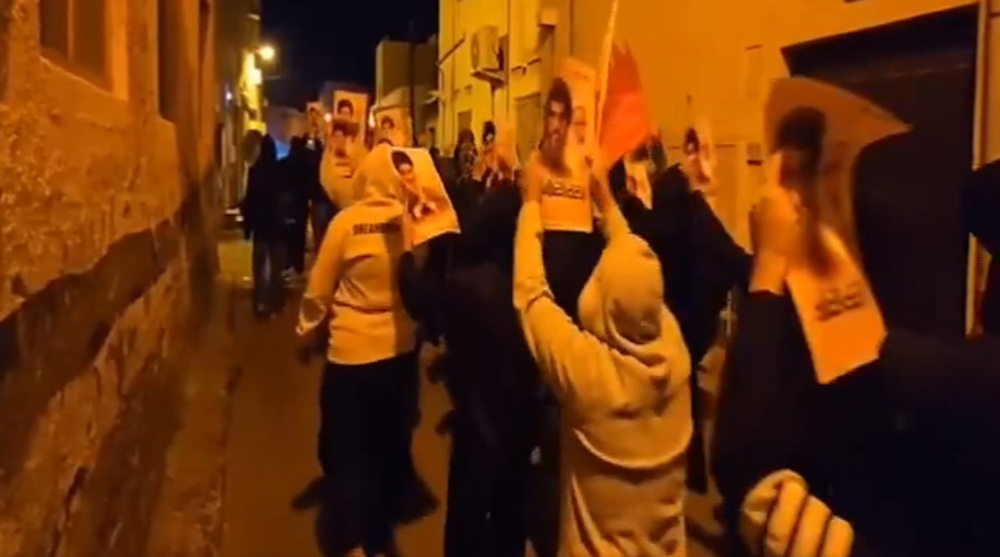
Bahraini mourners hold symbolic funeral procession for late Hezbollah leader
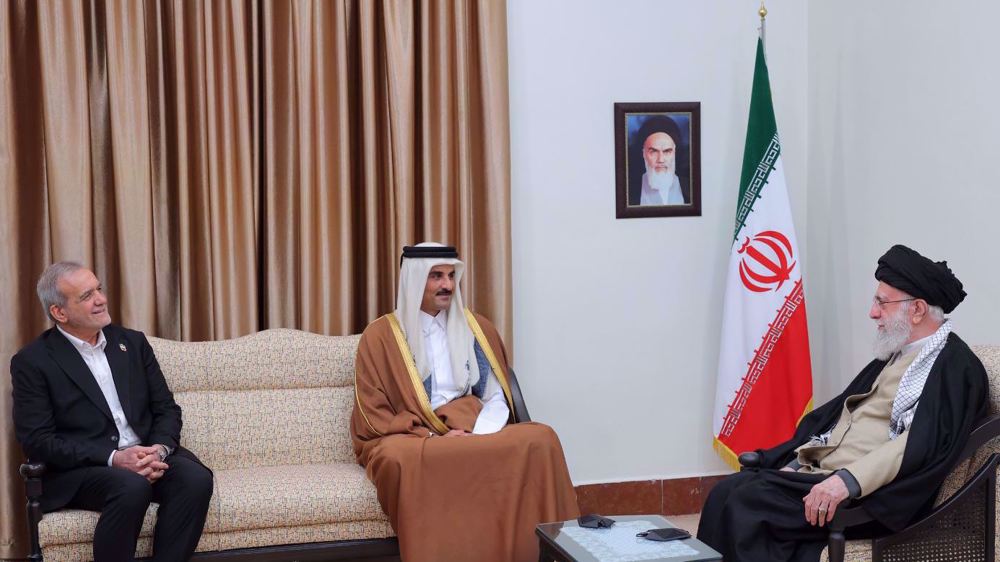
Leader puts premium on boosting ties with neighbors in meeting with Qatari Emir
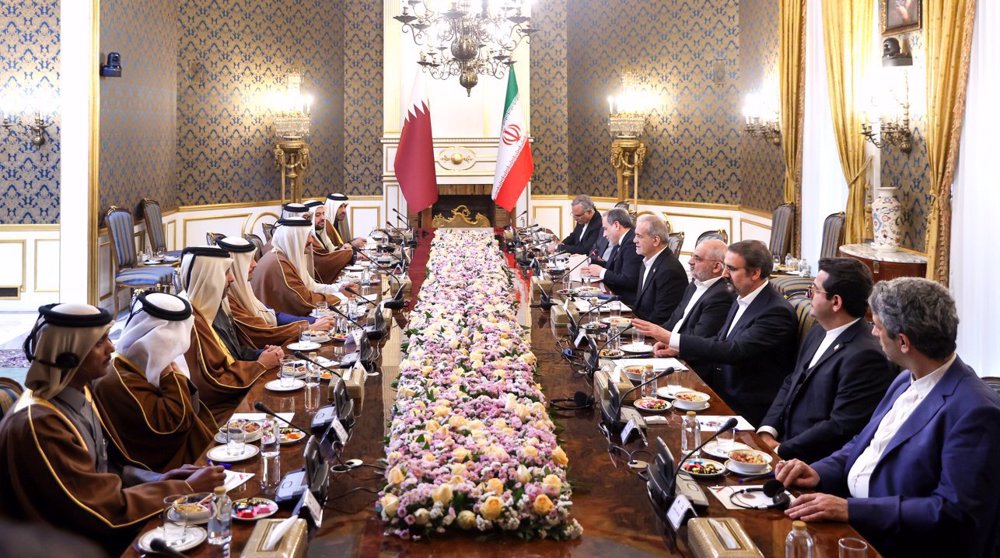
President Pezeshkian: Iran, Qatar opening new avenues for cooperation
Lebanese govt. must show it can expel Israeli occupiers: Lawmaker
VIDEO | Uncertainty over Gaza ceasefire
VIDEO | Gaza’s Ramadan: Tradition endures amid devastation
VIDEO | Trump-Zelensky ‘shouting match’ shows how US props up and discards ‘allies’
VIDEO | Global conference in Sana’a rejects Gaza displacement
Iran approves 500 MW of new solar power plants
UN relief chief says Israel’s decision to halt Gaza aid ‘alarming’
Israeli ministers urge Netanyahu to 'open gates of hell' on Gaza


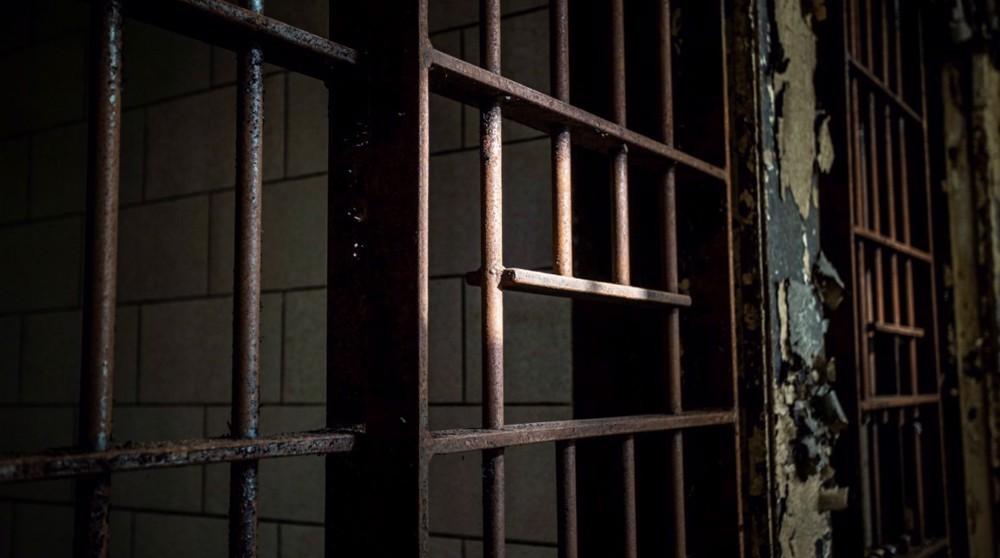
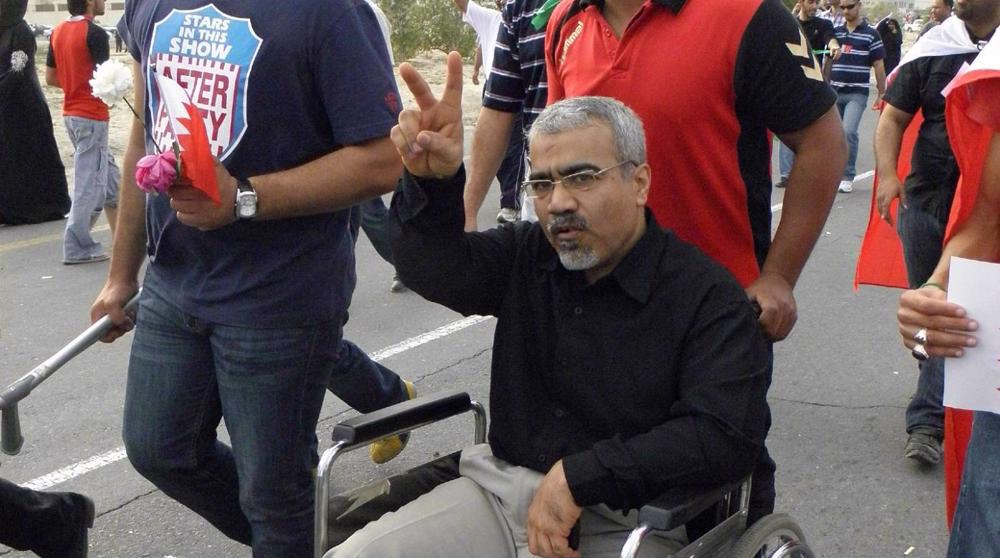




 This makes it easy to access the Press TV website
This makes it easy to access the Press TV website